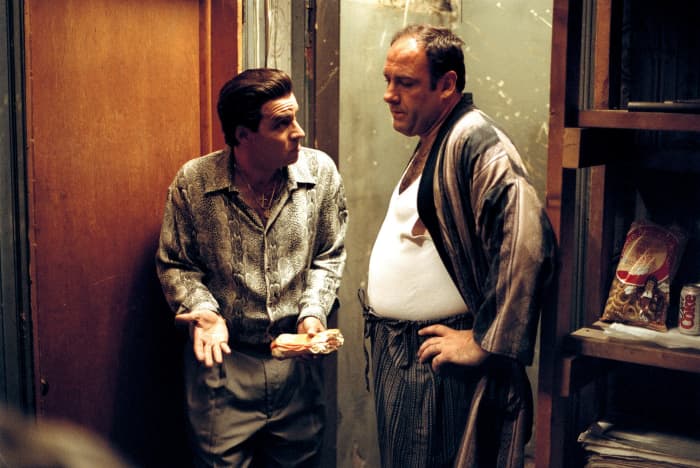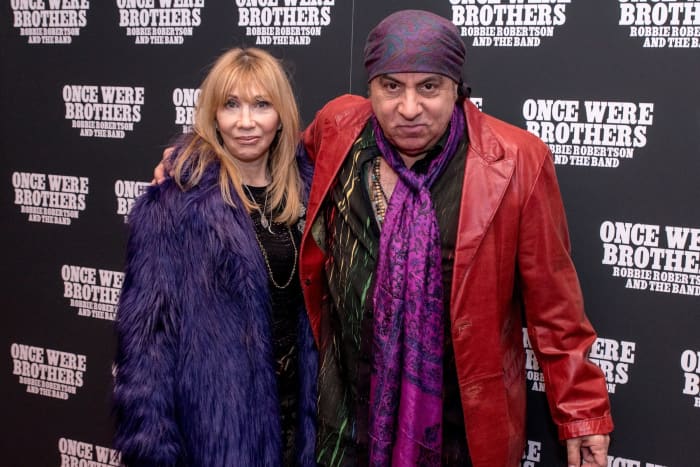This post was originally published on this site
This article is reprinted by permission from NextAvenue.org.
Stevie Van Zandt has had a career worthy of several book volumes, but he only just got around to writing the first one. At home for the first time in decades, Van Zandt, 70, finally had the opportunity to write down the details of his incredible journey as a musician, producer, songwriter, radio show host and activist.
Van Zandt (aka “Little Stevie”) began his career in the music industry as a teenager in New Jersey, where he met another young musician named Bruce Springsteen.
Due to the pandemic, Van Zandt used his time off from touring to write “Unrequited Infatuations,” which hit bookstores in September.
Next Avenue talked to Van Zandt about his multifaceted career.
Next Avenue: Musician, actor, producer…This list goes on. How have you been able to do so much?
Stevie Van Zandt: When you are an artist, you are lucky when an audience discovers you. I got lucky with The E Street Band. Then I got doubly lucky that even though the audience knew me as a musician, they were willing to accept me as an actor [playing a gangster on TV’s “The Sopranos” and “Lilyhammer”].
That said, some of my most personal work I never found an audience for, and that is where the title of the book, ‘Unrequited Infatuations,’ comes from. Sometimes the things you love don’t love you back. But I don’t take the successes for granted.

Van Zandt, left, with James Gandolfini in the first season of “The Sopranos.”
HBO/Everett Collection
In the early ’80s you left The E Street Band. Looking back, do you regret it?
At the time, it felt like I had ended my life. After 15 years with the band, I was starting again, on my own without a plan. I didn’t know what I was going to do. And yet, so many great things came out of that decision.
I became an artist in my 30s, an actor in my 40s. I was able to accomplish so much by finding a way to move forward. My advice after disappointment is that life may surprise you and that it’s what you do next that really matters.
You might like: Here’s everything new on Netflix in November 2021 — and what’s leaving
You also became an activist [Van Zandt started Actors United Against Apartheid in 1985]. What compelled you to speak out?
Back in the ’80s, a lot was going on and it was all very hidden. I felt if I had the microphone, I needed to speak up. Celebrities need to use their fame to make a difference. I still believe that. We need to be a part of talking about the issues, even the scary ones, and make it a normal part of our business to speak out and help where we can.
Throughout your career, you have shared your knowledge to help other artists. In a business that can be cutthroat, why the generosity?
I never knew my birth father and that can mess people up. But I got so much damn love – from my mother, my grandparents. I always felt secure and that there was room for everybody.
I also never craved the spotlight. I liked being behind the scenes as a writer, a producer, a member of the band. I had no interest in being a solo artist. I am a family guy and a band is a family, it’s friendship, it’s communication. Together, something good becomes something great.
That connection must make losses [E Street band members Danny Federici and Clarence Clemons have died] especially tough. How do you keep the band going?
My technique is denial (laughs). When you are young, denial is your enemy, but as you get older, it’s helpful. I have no sense of time. There are friends that I haven’t spoken to in five or 10 years, and then we pick up where we left off. So I pretend I just haven’t seen them [Federici and Clemons] in a while and they are still with me.
Sometimes, I have conversations with them. We will never replace them, but we can continue because the music is bigger than all of us and it transcends. It’s a different E Street Band, but it continues as long as there is Bruce and I’m by his side. [Van Zandt returned in 1995 and 1999, and is currently a member of the band.]
Many people listen to music and feel transported back in time. Do you think that way?
I am not a nostalgic person, so I don’t look back too much. To me, every day is 1967. I never left that magical time. It was the summer of love, the ultimate period of music with Jimi Hendrix, Sgt. Pepper, The Doors, Jefferson Airplane…I love that whole psychedelic thing. But I am not stuck in the past. Instead, I am creating new things with a part of these traditions, so it’s all connected.
I don’t live in the past, but I don’t let go of it either – it flows through to the future.
In the book, you write about a conversation with Bruce where you talk about how the gift of songs is that they tell people about their lives and help them understand their existence. Can you explain?
Music is a convenient art form. In three minutes, the right song can explain something and allow listeners to understand their lives better. One of the best communicators we have is music, especially rock music.
Rock ’n’ roll can change the world for the better, which is why I started TeachRock.org (an arts integration curriculum focused on the history of popular culture and music). Schools need to shift the focus from STEM (Science, Technology, Engineering, Math) to STEAM (Science, Technology, Engineering, Arts and Math) and include the arts as part of the curriculum, not just an after-school activity. We don’t need to teach kids what to think. We need to teach them how to think. That is the power of music. It makes us all think and it can transform us.
You and your wife Maureen have been married for 40 years. What is the secret sauce?
Being on the road! (laughs) I do think to stay together, you have to stay apart. Each partner creates their own identity, has a separate life and keeps busy. You get to grow on your own and have a chance to miss each other. Then when you are together, it’s brand new and you complement each other.

Steve Van Zandt and his wife of 40 years, Maureen Van Zandt, in February 2020.
Everett Collection
The E Street Band last toured in 2016 when you were in your 60s. How was the experience different than in your 20s?
We used to do 4-hour shows with an intermission and now we do 3.5 hours straight through. The songs are probably a better tempo for us than they were years ago. But what is great is that now the pressure is gone.
For the first 15 years with the band, we used to worry, ‘Will we make it?’ We didn’t have a plan B except to keep doing this somehow and hope it worked out. Now we don’t have that anxiety. We can enjoy performing and playing music.
Any desire to slow down as you get older?
I am slowing down a bit, but that is just enough to be at a normal pace for most people. The older I get, the more productive I am. I am in more of a hurry because I still want to do so much, so much I want to create.
Also read: How much will you spend in retirement? 6 things you probably haven’t considered
Even with pandemic and quarantine, these past three years have been some of my most productive yet. I’ve been busy with the book and with my bands (Soulfire and Summer of Sorcery). I have a few scripts and I’m interested in a return to television. But my first priority is Bruce. If he wants to go out on tour, I’m there.
So no plans for retirement?
Retirement? Nah — I don’t even take vacations. I did once in 1978, and I didn’t like it. If I go somewhere, I want to work. Being on stage, being with the band – that’s what I love.
Randi Mazzella is a freelance writer specializing in a wide range of topics from parenting to pop culture to life after 50. She is a mother of three and lives in New Jersey with her husband and teenage son. Read more of her work on randimazzella.com.
This article is reprinted by permission from NextAvenue.org, © 2021 Twin Cities Public Television, Inc. All rights reserved.
More from Next Avenue:


